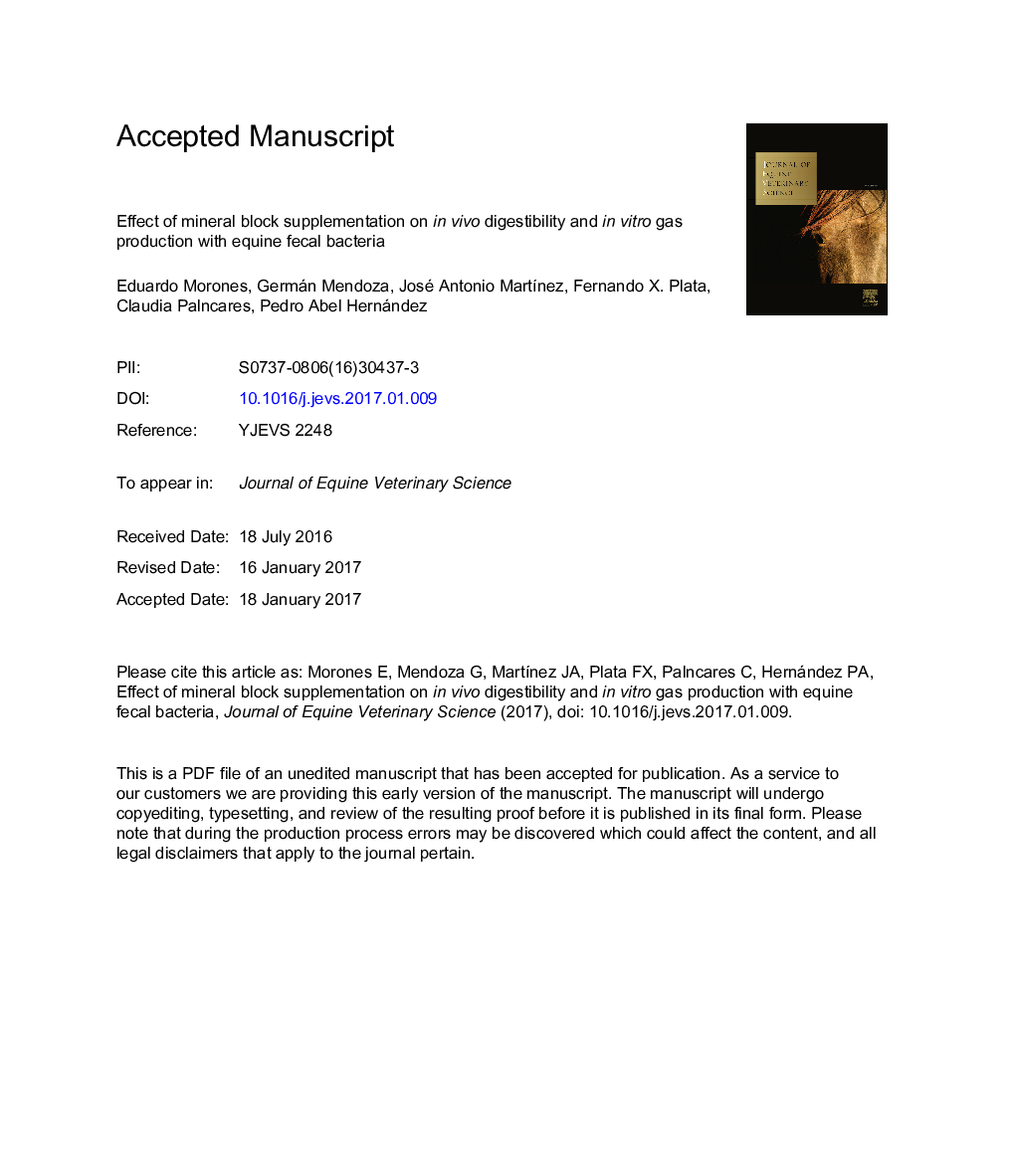| Article ID | Journal | Published Year | Pages | File Type |
|---|---|---|---|---|
| 5535648 | Journal of Equine Veterinary Science | 2017 | 19 Pages |
Abstract
The effects of a mineral block for horses on in vivo digestibility and in vitro fermentability with equine fecal inoculum were evaluated. Fifty healthy horses from three groups (lactating mares n = 19, working horses n = 18, and maintenance horses n = 13) were randomly assigned to two treatment groups (with or without the mineral block; Ca 10.0%, P 12.0%, Zn 12.1 mg/kg, Cu 2,050 mg/kg, Mn 4,050 mg/kg, Se 30 mg/kg, and I 105 mg/kg). Dry matter digestibility was estimated with an internal marker. Samples of diet were incubated with equine fecal bacteria with varying amounts of mineral block (0, 1.1, 3.6, and 6.2 mg/g dry matter [DM]) to record gas production and to estimate in vitro DM digestibility. The results showed that mineral supplementation with the blocks increased in vivo DM digestibility (P < .01) in all groups, but there was an interaction (P < .01) with a greater response in the maintenance horses (55.5% vs. 78.0%) compared to lactating mares (62.8% vs. 79.6%) and working (70.3% vs. 75.1%). Block consumption was lowest in the lactating mares (12.8 g/d), intermediate in the working horses (44.6 g/d), and highest in the maintenance horses (74.2 g/d). The mineral supplementation did not affect the kinetics of gas production but tended (P = .10) to improve the in vitro DM digestibility (37.01% vs. 38.34%). Mineral block supplementation increased dry matter digestibility in horses. The unsupplemented control diet was deficient in several minerals, and block intake was not proportional to the mineral requirements.
Keywords
Related Topics
Life Sciences
Agricultural and Biological Sciences
Animal Science and Zoology
Authors
Eduardo Morones, Germán David Mendoza, José Antonio MartÃnez, Fernando X. Plata, Claudia Palancares, Pedro Abel Hernández,
